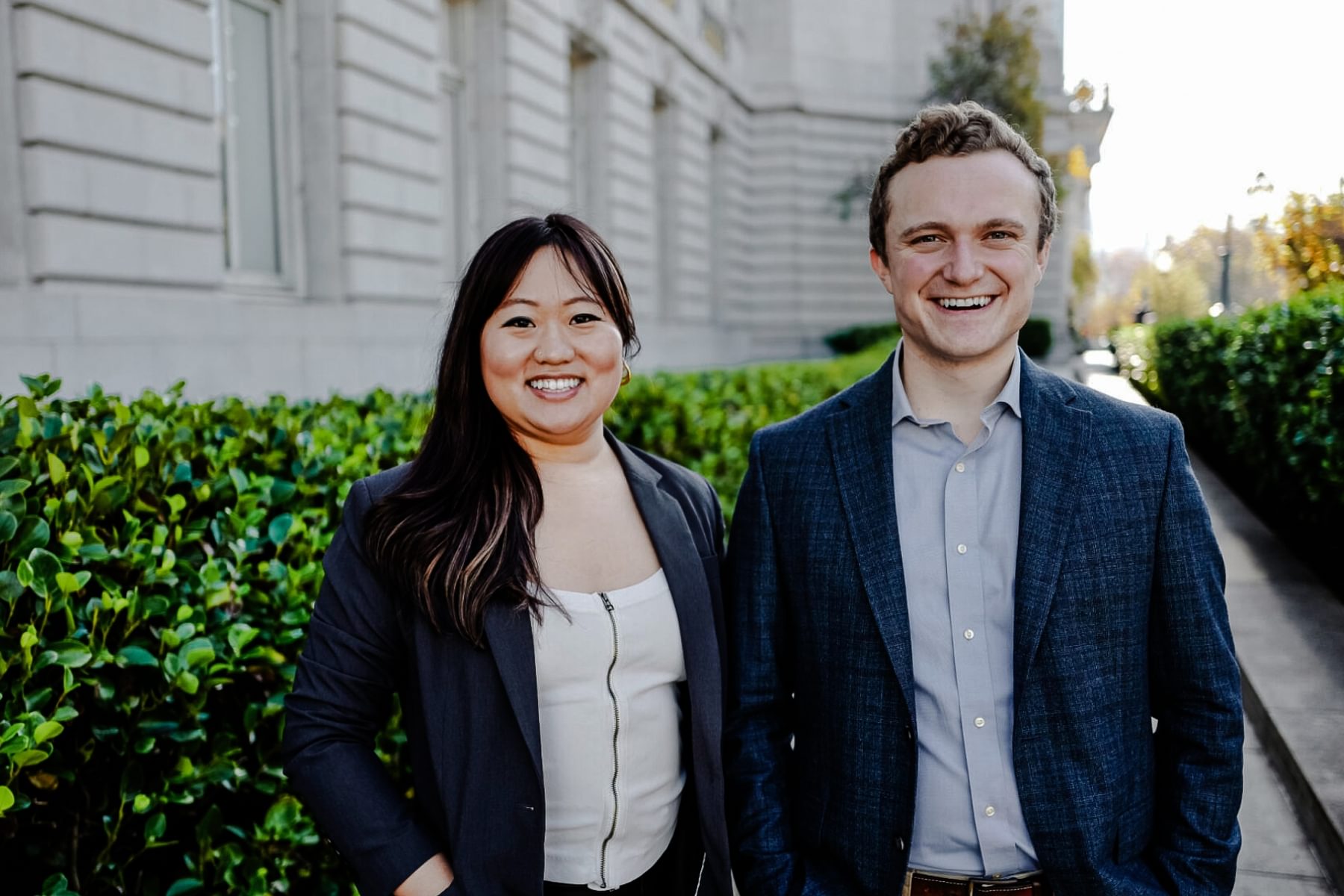I am excited to introduce you to some of the many outstanding Black-led teams in our Harvard Innovation Labs community. But first, a note about Black History Month.
Why is Black History Month important? It should go without saying, but it is our chance to remind each other that Black innovators have been making major contributions to society for centuries and indeed, Black history happens every day. Taking time to put the Black experience front and center and celebrate Black leaders is critical. Black History Month (or any Diversity Awareness Month) is not just about recognizing a particular community of people one month of the year; it’s a source of momentum for doing meaningful equity work all year long. When we honor the Black experience, we create more space for honoring others from marginalized communities that have experienced violence, hate, and systemic inequities across the board.
As we celebrate Black History Month, check out Harvard in Focus with features, profiles, podcasts and more as well as a collection of historical and contemporary photographs and a feature on Dr. Carter G. Woodson in The Harvard Gazette. View a full calendar of events from the Office for Equity, Diversity, Inclusion, and Belonging; and follow our Black Innovators series on our social channels. Read Harvard Business School’s Advancing Racial Equity plan.
Debbie Dickinson: Co-Founder, Thermaband
Harvard Law School, Class of 1995
About Thermaband
Debbie Dickinson: My daughter and co-founder, Markea Dickinson, and I founded Thermaband in 2019. We are on a quest to modernize menopause, a natural season of every woman's life. Our venture represents a collaborative effort with scientists, engineers, and a community of women to create a natural and discreet wearable that provides relief for thermal discomfort (feeling uncomfortably hot or cold) on demand with digital insights. We have developed a connected wellness device called “the Zone” that provides cooling or heating sensations to make comfort accessible and promote agency and equity, empowering women as they navigate this new season of life. Our customers are excited that the Thermaband Zone is designed and created by women, for women as well as their loved ones who experience thermal discomfort. Women represent half the world's population, yet women's health is typically overlooked. Taboo topics, such as menopause and its related symptoms, are shunned and stigmatized. But all women experience menopause at some point in their lives, just as we once experienced puberty. It's a natural evolution. And, we are mindful that women of color, especially Black women, often experience menopause and vasomoter symptoms (hot flashes and night sweats) earlier, longer, and more intensely than white women, according to the Study of Women Across Nations (SWAN Study). Health outcomes for Black women are typically poor, and menopause is no exception. We offer solutions by harnessing community and AI. We are unapologetic in our determination to leverage technology to harness the body's natural ability to regulate its temperature and perception of comfort.
Recent wins & impact
Dickinson: We raised a $1.5M pre-seed round, with Google joining as an investor among other VCs and accredited investors and are now preparing for our seed raise. We kicked off presales of the Thermaband Zone and are developing the device for shipment this spring. I was recently featured in Forbes as one of eight female founders disrupting menopause. Markea and I were also featured in Cosmopolitan as the new C-suite, featuring Women of Color who are changing corporate culture. We have created a vibrant “Multigenerational Sisterhood” online community to destigmatize menopause and promote women's health and wellness through unity, education, and collaboration. And we are thrilled to be part of the Harvard Innovation Labs alumni community.
How to create an equitable future for Black entrepreneurs
Dickinson: Black entrepreneurs in general, and Black women in particular, often face a higher burden of proof in raising capital than our white counterparts, and in many cases, when funding is extended, the terms are predatory. This is true not just with majority investors, but with minority investors as well. To create an equitable future for Black entrepreneurs, we must first address this differential funding hurdle and predatory practices. I am encouraged by the access we've gained to pitch various networks of socially conscious investor groups who seem genuinely interested in changing the narrative around access to capital. However, much more will be necessary to truly change the equity equation. I think the Harvard community is particularly well-suited to be a change agent here with its vast entrepreneurial ecosystem. Our alumni network literally runs the largest venture capital firms in the world. The question becomes how best to tap into those vast resources and strive for parity? Change starts with acknowledgement; the next step is the intentional and equitable deployment of capital and resources with measurable and timely accountability.
Opportunities for collective leadership in the larger innovation ecosystem
Dickinson: I am thrilled that Harvard recognizes and embraces its alumni founders. Although considerable resources have been afforded to entrepreneurial Harvard students, there’s a lot of opportunity to further support alumni founders, especially those who have created startups after pursuing other careers. They have an abundance of phenomenal business ideas and potential. I commend Harvard starting to recognize this need and intentionally creating opportunities and resources through the i-lab and Harvard Alumni Entrepreneurs specifically for alumni. While connecting with other alumni entrepreneurs and i-lab staff and advisors is profoundly valuable, I'd love to connect with more people and resources across the entire university to explore opportunities for research and collaboration.

Thebe Tsatsimpe: Co-Founder, Empowered Homes
Harvard Kennedy School, Class of 2019
About Empowered Homes
Thebe Tsatsimpe: I am Co-Founder alongside Zwelihle Mfundisi of Empowered Homes. We empower South African households (our first market) to take charge of their power needs by making it easy for them to get solar panels and battery storage solutions (a “solar energy system”) through a tech-enabled process. Our customers provide us with a few data inputs and within minutes, we can propose a solution for their home. We coordinate stakeholders around procurement, logistics, installation and manage the solutions performance for our customers. We are solving a real problem, a core day-to-day need. Why does this work matter? Power outages in South Africa have increased 11 times over (in terms of daily average outage hours) from 30 minutes to 4 hours while the cost of utility power is exploding. From 2012-2019, the average tariff increase was about 11 percent, hitting about 18-25 percent in recent years. More worrisome for us is that customers do not know where to get started on finding solutions, what a reputable solution is, and who are trusted providers. We seek to bridge this gap and become the go-to residential solar energy provider. Our key value-add and differentiator is the way we provide a right-sized solution quote across premium and mid-range products within minutes. We support the seamless delivery of a solar energy system by taking care of the parts procurement and delivery and installation, and ultimately, by maintaining the solution for customers. Part of the way we do maintenance is how we unlock additional returns for customers by helping them sell excess energy into the utility. Moving into the future, we support our clients in trading in carbon credits accrued by offsetting emissions from dirty coal-fired power.
Recent wins & impact
Tsatsimpe: Our customers don’t worry about blackouts anymore and appreciate the cost savings they get from the alternative energy source. Together with our customers, we get to displace coal-fired power with clean and renewable energy sources. The cost of our solution starts from $5,500, a large amount of money for customers in Africa, albeit upper middle-income South Africa. Still, we’ve hit over 33 installations and generated close to US $350,000 in revenues over the past 18 months. Further, we just had our first two customers finance their solutions over a 6-month payment term during our asset-finance trial pilot. This is encouraging as it will enable us to serve more people/households who might not have the full upfront capital to purchase the solar energy system. Our customers have shown an appetite to make a deposit for the solar energy system after remote engagements with us, which has been encouraging with regard to managing acquisition costs. On the client impact side, we’ve observed that some of our clients’ homes are close to off-grid, in other words, reliant on solar energy and battery power from 7am to10pm and now they don’t experience blackouts. Our clients have saved on average 40-60% on their electricity bills. The majority of our customers are also net promoters and some have come back to us for upgrades to their systems (e.g. increasing the battery storage). Lastly, we’re seeing our digital marketing efforts, including our work with influencers, is driving leads to our platform.
How to create an equitable future for Black entrepreneurs
Tsatsimpe: First, we need to reduce the burden of proof for Black founders to attract investments to their ventures, particularly outside of the U.S. There is a negative social bias around ideas catalyzed by Black founders, hence a higher bar of traction or proof points tend to be needed before support can be given across the startup ecosystem. Africa is currently starved of VC financing opportunities; even the LPs funding African VC have higher due diligence requirements before funding Africa-based startups. Tough as it is to run a startup, it’s even harder when there’s additional work that Black founders have to do that their peer (non-Black) founders do not have to do to attract resources. Many raise from pitch decks (ideas) whereas Black founders need to show real traction. Also, given past social injustices and limited opportunities for Black people around the world, there are very few natural networks within various industries for Black founders. This makes it much harder to get a head start in various areas (higher cost of discovery) or to source support. Creating networks to guide and connect Black founders is a high value-add as, otherwise, the bar for success is much higher and the “hustle” becomes even greater.
Opportunities for collective leadership in the larger innovation ecosystem
Tsatsimpe: We all strive to provide solutions to the day-to-day challenges we face or that we observe others facing. More effort could be made to bring founders together across work being done to share about their ventures—problems being addressed and their solutions—so that we might identify ways in which our ventures complement each other. In this way, we can leverage each other’s work or customer bases and create greater opportunities for impact through expanded reach and by collectively solving more business problems for more people.

Remen Okoruwa: Co-Founder & CEO, Rentdrop
About Rentdrop
Remen Okoruwa: Rentdrop is an app that provides renters and landlords a convenient, rewarding way to make rent payments. I get excited about the opportunity we have to deliver impact at scale. More than 43 million households in the U.S. are renters, and the Federal Reserve estimates that 80% of rent is still paid on a piece of paper. While our goal is to modernize rent payments, doing social good is core to our mission. We want to make renting a path to homeownership and financial security. That's why we are building out features like reporting rent payments to the credit bureaus. We think it's crazy that folks who consistently pay thousands of rent each month struggle to get a mortgage, so we want to level the playing field by sharing data to prove that renters are creditworthy borrowers.
Recent wins and impact
Okoruwa: We've raised nearly $1M from angels who believe in our mission and the opportunity we are tackling. We just launched our web app in December 2021 with 212 signups in the first month and $25K in payments processed. And our engineering team is working hard on our mobile app, due for release this spring.
How to create an equitable future for Black entrepreneurs
Okoruwa: Investors need to walk the talk. Over the past couple of years, I've read loads of articles about VCs wanting to back more Black entrepreneurs, but looking at the data, I'm not seeing a meaningful uptick in fundraising that corresponds with that narrative. There are so many compelling Black founders tackling big problems. I want to see more get the recognition and support they need to take their ventures to the next level.
Opportunities for collective leadership in the larger innovation ecosystem
Okoruwa: Let me give credit where it is due. The Black New Venture Competition is an awesome program providing visibility and funding to entrepreneurs within our community. I'm so glad this exists and has the backing of major corporate and VC sponsors. As a Harvard alum, I think there are definitely more opportunities for community building, networking, and fundraising to support Black entrepreneurs. That's especially true for connecting those who are still in school with alums who are further along in their journeys.






